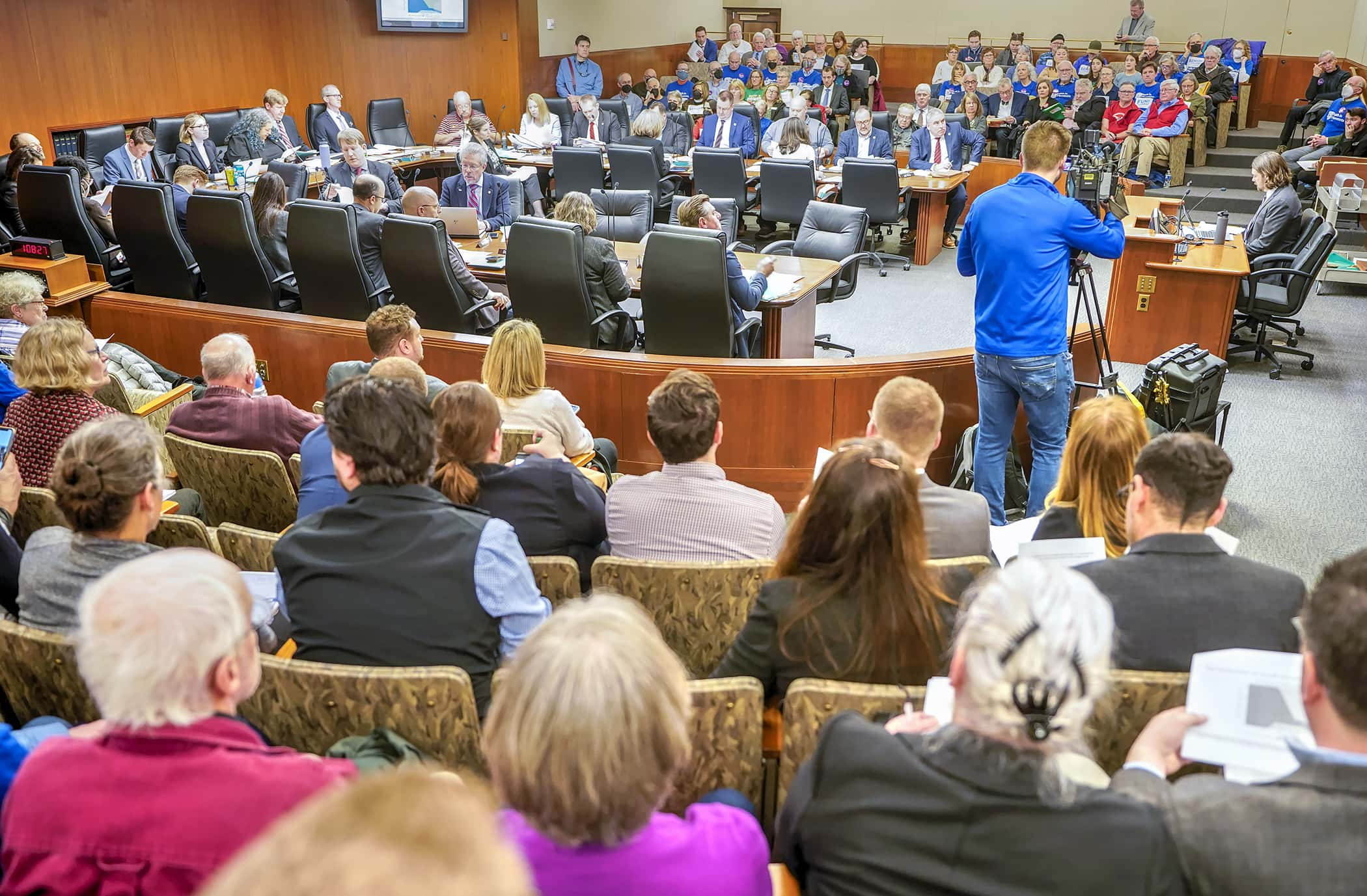The package encompasses various provisions, including a deal on one-time rebate checks, which Governor Tim Walz had emphasized as a priority before the end of the session.

Minnesota Legislature’s Tax Bill Conference Committee concluded negotiations on a significant $3 billion tax package on Wednesday night
The rebate checks amount to $1.15 billion in tax cuts, aids, and credits. Individuals with an income of up to $75,000 would receive rebate checks of $260, while couples earning up to $150,000 would receive $520. Furthermore, taxpayers with up to three children could receive an additional $260 per child.
Another key aspect of the tax package is the introduction of a child tax credit amounting to $1,750 per dependent, with a phase-out threshold at an income of $35,000. Additionally, a new renter’s income credit is included. Notably, individuals earning up to $100,000 would be exempt from paying Social Security taxes, and the number of Minnesotans subject to state tax on Social Security benefits would be halved.
While the tax package provides tax cuts and credits, it also includes approximately $1 billion in tax increases for the upcoming two-year budget, effective from July 1. These increases involve a tax targeting companies with international earnings and modifications affecting higher-income earners. The package would also authorize certain communities to raise local sales taxes.
The tax bill reflects the priorities of all three groups involved, according to bill sponsor Senator Ann Rest. The House prioritized property tax relief, the Senate focused on Social Security subtractions, and the governor emphasized the historic nature of the child tax credit. The tax bill conference committee is expected to grant its final approval on Thursday and subsequently submit it to the House and Senate for final authorization. As the legislative session deadline approaches on Monday, the tax bill holds significant importance within the overall budget, projected to be around $65 million, a notable increase from the current $55 billion budget expiring in June.
The plan allocates $300 million for public safety assistance to communities and an additional $160 million in state aid for cities and counties
Notably, the tax bill does not include the House-backed proposal for a fifth income tax bracket on incomes exceeding $1 million, as this measure was removed during the negotiations.
Although Senate Republicans expressed disappointment regarding the exclusion of couples earning more than $150,000 and single filers with incomes exceeding $75,000, the tax package represents a compromise resulting from negotiations among different groups. Earlier proposals from House and Senate Republicans, known as the “Give it Back” plan, sought to provide $13 billion in tax relief over two years, including $5 billion in rebate checks funded by the state’s $17.5 billion surplus.
READ ALSO: What Would Occur If The Government Went Into Debt Default?




